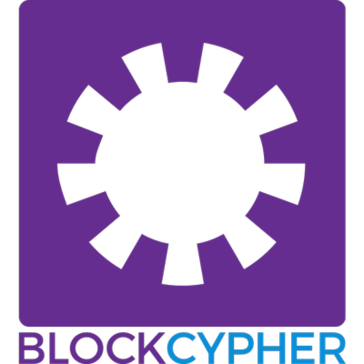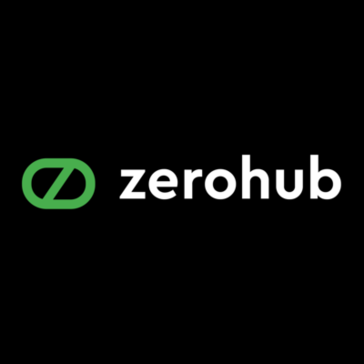Top Blockchain Payments Softwares
Blockchain Payments software offers a transformative approach to handling transactions, leveraging the power of distributed ledger technology. It provides a secure and transparent way for businesses and individuals to conduct payments, eliminating the need for traditional intermediaries. This software ensures faster processing times and reduces transaction costs by facilitating direct interactions... Read More
8 companies found
BlockCypher
Product Description
BlockCypher is a versatile SaaS platform designed to simplify the complexities of integrating and managing blockchain solutions for businesses. It offers a straightforward, user-friendly interface that allows companies to interact with multiple blockchains seamlessly. This means that whether you're dealing with Bitcoin, Ethereum, Litecoin, or other blockchain networks, BlockCypher removes the need... Read More
Users
- • No Data
Industries
- • No Data
Market Segment
- • No Data
Product Description
Metamask is a software tool that makes interacting with the Ethereum blockchain and decentralized applications user-friendly. Essentially, it's a digital wallet that you can install as an extension on your web browser. This wallet allows you to store digital assets like cryptocurrencies safely and interact with blockchain applications without having to navigate complicated, technical steps. The k... Read More
Users
- • No Data
Industries
- • No Data
Market Segment
- • No Data
Product Description
GoCoin is a user-friendly software solution designed for businesses looking to accept various digital currencies for their products and services. Whether you’re a small business owner or managing a large enterprise, GoCoin makes it easy to accept payments in popular cryptocurrencies like Bitcoin, Litecoin, and Ethereum, among others. The platform is designed with simplicity in mind, ensuring that... Read More
Users
- • No Data
Industries
- • No Data
Market Segment
- • No Data
Zengo Wallet
Product Description
Zengo Wallet is a user-friendly cryptocurrency wallet designed to simplify the process of managing digital assets. It’s tailored for both beginners and seasoned crypto enthusiasts who need a reliable and straightforward way to store and manage their digital currencies securely. What sets Zengo Wallet apart is its focus on making security hassle-free. Instead of traditional passwords and lengthy ... Read More
Users
- • No Data
Industries
- • No Data
Market Segment
- • No Data
Product Description
Zerohub is a user-friendly software designed for businesses looking to manage their operations more smoothly and efficiently. It provides essential tools for handling tasks like project management, customer relationship management (CRM), and team collaboration, all in one place. With Zerohub, you can easily keep track of your projects from start to finish. The platform allows you to assign tasks... Read More
Users
- • No Data
Industries
- • No Data
Market Segment
- • No Data
OpenBazaar
Product Description
OpenBazaar is a free online marketplace that lets users buy and sell goods and services directly with each other using cryptocurrency, without any middlemen. It’s designed for those who want complete control over their finances and transactions, eliminating the need for traditional banking systems or third-party services. One of the main features of OpenBazaar is its decentralized nature. This me... Read More
Users
- • No Data
Industries
- • No Data
Market Segment
- • No Data
Product Description
Circle is an online community platform designed to help businesses and creators build engaged communities around their products, brands, or ideas. Think of Circle as a virtual clubhouse where people come together to share knowledge, foster discussions, and grow collectively. Whether you're running a business, an online course, or a fan club, Circle gives you the tools to bring your members closer ... Read More
Users
- • No Data
Industries
- • No Data
Market Segment
- • No Data
Mastercard Blockchain
Product Description
Mastercard Blockchain software is designed to bring clarity and efficiency to your financial transactions. This software leverages blockchain technology to improve the transparency and reliability of financial data. By using a decentralized system, it reduces the risk of fraud and errors, making transactions more secure and trustworthy. Ideal for businesses looking to streamline transactions and ... Read More
Users
- • No Data
Industries
- • No Data
Market Segment
- • No Data
What is Blockchain Payments software and how does it work?
Understanding Blockchain Payments Software
Blockchain Payments software is a technological innovation that leverages blockchain technology to facilitate financial transactions. Blockchain, the underlying technology, is a distributed ledger system that ensures transparency, security, and immutability. This software streamlines the process of transferring digital currencies and assets, offering a decentralized approach that eliminates the need for traditional banking intermediaries.
How Blockchain Payments Software Works
1. Transaction Initialization:
The process begins when a user initiates a transaction using Blockchain Payments software. This transaction can involve transferring funds between parties or purchasing goods and services using digital currencies. The software serves as an interface that manages the details of the transaction.
2. Verification Process:
Once a transaction is initiated, it must be verified before being added to the blockchain. Blockchain Payments software relies on miners or validators to confirm these transactions. Miners use computational power to solve complex mathematical problems, which in turn validates the transaction. This process, known as consensus, ensures that the transaction is legitimate and trustworthy.
3. Secure Recording:
After successful verification, the transaction is grouped with others into a block. Blockchain Payments software then records this block on the blockchain. The decentralized nature of the blockchain ensures that once a transaction is recorded, it cannot be altered, providing a permanent and tamper-proof record.
4. Digital Wallets:
Users of Blockchain Payments software often use digital wallets to store and manage their cryptocurrencies. These wallets interact with the blockchain to allow users to send, receive, and monitor their digital assets. By using public and private keys, digital wallets ensure secure access to funds and transaction data.
5. Smart Contracts Implementation:
Many Blockchain Payments software solutions integrate smart contracts, which are self-executing contracts with the rules and regulations encoded into the blockchain. These contracts automatically execute transactions when predetermined conditions are met, eliminating the need for intermediaries and further enhancing the efficiency of the process.
Decentralization and Security
Decentralization is a cornerstone of Blockchain Payments software. By distributing the ledger across a vast network of nodes, the system reduces the risk of central points of failure. Security is enhanced by cryptographic principles that safeguard user data and transaction integrity. Each transaction is transparent, but personal identities remain protected through encryption methods.
Conclusion
Blockchain Payments software represents a transformative shift in the way financial transactions are conducted. By bypassing traditional financial institutions, it empowers users with greater control over their funds while providing enhanced security and transparency. This advent of technology redefines the landscape of digital payments by making transactions more efficient, reliable, and accessible.
Blockchain Payments software thus works by leveraging the inherent properties of blockchain technology to provide a powerful, streamlined, and secure solution for modern financial transactions, revolutionizing how individuals and businesses handle their digital assets comprehensive and secure manner.
How can Blockchain Payments software improve transaction security?
Blockchain Payments software is fundamentally altering the landscape of digital transactions by enhancing security through several core mechanisms. These technologies utilize blockchain's inherent properties to ensure that all transactions are secure, reliable, and tamper-proof. Below are ways Blockchain Payments software improves transaction security:
Decentralization
Decentralization is a cornerstone of Blockchain Payments software. Unlike traditional payment systems, which rely on centralized authorities, blockchain allows transactions to occur without a single point of failure. Each transaction is propagated across a network of nodes, ensuring that no single entity controls the entire system. This nature makes it exceedingly difficult for hackers to alter or compromise the transaction records since any change in the transaction data would require consensus across the entire network.
Cryptographic Security
Blockchain Payments software employs cryptographic techniques to protect transactions. Each transaction is encrypted using cryptographic hashing, ensuring that transaction details are secure and cannot be altered retroactively without alerting the whole network. Public and private keys are used to encrypt and decrypt information, allowing only the rightful owner to authorize payments. This use of cryptography enhances data integrity and confidentiality.
Immutable Ledgers
The immutability of ledgers in Blockchain Payments software strengthens transaction security by making changes to transaction data nearly impossible once recorded. Once transactions are written into a block and validated, they are time-stamped and linked to the previous block in the chain. This method, known as chaining, creates a permanent, unalterable record. Any attempt to alter transaction details post-validation would require recalculating the hashes for subsequent blocks, a computationally prohibitive effort.
Consensus Mechanisms
Blockchain Payments software utilizes consensus mechanisms such as Proof of Work or Proof of Stake to validate and agree on transaction authenticity. These consensus protocols ensure that all participants in the network validate and approve the transaction. As a result, a single or small group of users cannot falsely introduce or alter transactions, fortifying the network against fraudulent activities.
Transparency and Audibility
Transparency is intrinsic to blockchain technology. Blockchain Payments software provides open access to the transaction history, which permits continuous auditing by network participants. Each transaction can be traced back to its origin, providing transparency in financial processes. This auditability helps in early fraud detection, ensuring that security breaches are caught before they escalate.
Smart Contracts
Smart contracts in Blockchain Payments software automate and enforce transaction terms between parties. These self-executing contracts automatically trigger actions like payments when predefined conditions are met. By eliminating manual intervention, smart contracts minimize human error and ensure tamper-proof transactions, enhancing security controls on financial dealings.
By including these secure features, Blockchain Payments software significantly improves transaction security, delivering a trusted and resilient infrastructure for digital payments. This way, Blockchain Payments software provides a robust framework for secure, transparent, and immutable financial transactions across various sectors.
What are the benefits of using Blockchain Payments software for businesses?
Enhanced Security
Blockchain Payments software offers heightened security for transactions. By using encryption and distributed ledger technology, this software minimizes the risk of fraud and unauthorized access. Every transaction is recorded in a decentralized manner, ensuring data integrity. This also makes it harder for malicious actors to alter transaction records, thereby boosting confidence in financial exchanges.
Reduced Transaction Costs
Businesses benefit from reduced transaction fees when using Blockchain Payments software. Traditional financial systems often involve multiple intermediaries, each with their own charges. Blockchain technology eliminates many of these intermediaries, resulting in lower processing fees. This cost-effectiveness helps businesses save money, especially in the case of international transactions.
Faster Settlement Times
Using Blockchain Payments software can significantly speed up transaction processing times. In traditional systems, cross-border payments can take several days to clear due to numerous intermediaries. Blockchain technology facilitates near-instantaneous transactions by streamlining the payment process. This capability improves cash flow management, enabling businesses to operate more efficiently.
Increased Transparency
Blockchain technology fosters transparency, a critical factor for business operations. All participants have access to the same transparent and immutable transaction ledger. Blockchain Payments software makes it easy to audit these transactions, promoting trust and accountability. Businesses can therefore ensure regulatory compliance more effectively, as each transaction is accurately recorded and traceable.
Better Access to Global Markets
Blockchain Payments software breaks down geographical barriers, giving businesses access to global markets. Without relying on traditional banking systems, businesses can process payments from anywhere in the world. This inclusivity allows companies to expand their customer base across borders without being hindered by currency differences or regional banking limitations.
Improved Efficiency
Automation within Blockchain Payments software reduces manual interventions, minimizing errors and improving efficiency. Smart contracts embedded in the blockchain can automatically enforce payment terms, further streamlining operations. This level of automation decreases administrative overhead and the need for extensive reconciliation processes, letting businesses focus on core activities.
Enhanced Loyalty Programs
Blockchain Payments software enables innovative and secure loyalty programs. Businesses can use tokens or cryptocurrencies to run highly customizable reward systems. Customers have verifiable records of their rewards or points, providing transparency and increasing engagement. Businesses find it easier to manage and track these programs, leading to higher customer retention.
Trustworthy Peer-to-Peer Transactions
Blockchain Payments software supports peer-to-peer transactions, reducing dependence on third-party institutions. Trust is a built-in feature since blockchain's decentralized ledger ensures all parties have a consistent view of the transaction history. Businesses can engage in direct transactions with trading partners, resulting in a more streamlined and trustworthy exchange.
By integrating Blockchain Payments software, businesses can revolutionize their financial transactions. The emphasis on security, cost-efficiency, speed, transparency, and global market access can redefine how businesses conduct financial exchanges, enhancing overall competitiveness in the marketplace.
How does Blockchain Payments software handle currency conversion?
Distributed Ledger Technology
Blockchain Payments software relies on distributed ledger technology to maintain transaction records. Currency conversion within this framework takes place on-chain, allowing for transparency and traceability. Since all changes and transactions are logged on the blockchain, users can easily trace where and when a currency conversion occurred. This transparency ensures accountability, offering users peace of mind regarding their funds.
Smart Contracts
Currency conversion is often managed through smart contracts within Blockchain Payments software. Smart contracts are self-executing contracts with terms written into lines of code. These contracts automate currency conversion processes, executing conversions once predefined conditions are met. This automation reduces the chance of human error and fraud, ensuring efficient currency exchanges.
Decentralized Exchanges
Several Blockchain Payments software platforms integrate decentralized exchanges (DEXs) to manage currency conversion. DEXs enable peer-to-peer transactions without relying on a centralized authority. By utilizing liquidity pools, users can convert one currency to another seamlessly. Decentralized exchanges provide users with greater control over their assets, eliminating intermediaries through direct conversions.
Cross-Border Transactions
Blockchain Payments software handles cross-border transactions effectively by supporting multiple cryptocurrencies. Currency conversion occurs automatically within the software, allowing companies and individuals to bypass traditional banking systems. Quick conversions help reduce transaction times significantly, allowing for near-instant international payments.
Reducing Conversion Fees
The use of Blockchain Payments software is beneficial in reducing conversion fees. Traditional currency conversion involves intermediaries, often resulting in substantial fees. With Blockchain Payments software, those costs are minimized due to blockchain technology's decentralized nature. Users benefit from reduced fees, which translates into more cost-effective international transactions.
Exchange Rate Integration
Real-time exchange rate integration is a feature within many Blockchain Payments software systems. This feature ensures that users get the most accurate conversion rates. Blockchain Payments software fetches real-time data from a variety of sources, ensuring fair and competitive exchange rates for users. Real-time rate integration minimizes risks associated with fluctuating currency values.
Security and Privacy
Enhanced security and privacy inherently accompany Blockchain Payments software. During currency conversion, the software employs advanced encryption methods to secure transaction data. The decentralized nature of blockchain minimizes the risk of data breaches and unauthorized access, which is often a concern in traditional financial systems. Consequently, the users can confidently engage in currency conversion.
Scalability
Blockchain Payments software is increasingly scalable, accommodating various transaction volumes. This scalability is crucial for processing large-scale currency conversions efficiently. As blockchain technology evolves, it continues to improve its capacity, allowing for seamless operations even during peak transaction periods.
Overall, Blockchain Payments software revolutionizes traditional currency conversion methods. By leveraging blockchain technology, this software category provides users with efficient, secure, and cost-effective solutions, reshaping international financial transactions.
Can Blockchain Payments Software Reduce Transaction Fees?
Blockchain Payments software is a game-changer in the financial arena, especially for its potential in reducing transaction fees. By using a decentralized ledger, this technology facilitates secure and efficient transactions, often at a lower cost compared to traditional financial systems.
Trust and Transparency
Blockchain’s appeal lies in its transparency and elimination of intermediaries. In a conventional payment setup, multiple entities such as banks, payment processors, and clearinghouses are involved. Each participant charges fees for their services, which accumulate, increasing the overall transaction cost. Blockchain Payments software streamlines this process, managing transactions through a single decentralized ledger, which reduces the need for intermediaries, significantly lowering associated fees.
Direct Transfers
By allowing peer-to-peer transactions, Blockchain Payments software eliminates the need for intermediation. This is especially beneficial in cross-border payments where traditional systems incur high charges. Blockchain technology facilitates direct asset transfer between parties, reducing or even eliminating bank fees and currency exchange costs. This capability makes it an attractive tool for both businesses and individuals looking to minimize financial overhead.
Lower Operational Costs
Blockchain Payments software leverages distributed ledger technology to enhance security, automate processes, and reduce the workload required for transaction validation. By automating many verification processes, businesses can reduce labor costs and eliminate inefficiencies that contribute to higher transactional fees. These cost savings can be passed onto customers, resulting in more competitive pricing models.
Microtransactions Facilitation
Traditional payment systems often impose minimum fee structures, making small transactions disproportionately expensive. Blockchain Payments software allows for microtransactions due to its lower or negligible transaction costs. This advantage makes it a practical solution for digital content and services industries, where microtransactions are prevalent.
Smart Contracts
Smart contracts, integral to Blockchain Payments software, automatically execute terms when certain conditions are met. This automation reduces the need for third-party intervention and associated costs. Smart contracts ensure accuracy and compliance with predetermined conditions, hence decreasing the likelihood of errors and disputes, which add to transaction costs.
Security and Fraud Reduction
The secure, immutable nature of blockchain reduces the risk of fraud and chargebacks. Traditional systems have to allocate resources to manage and mitigate fraud, costs which are eventually transferred to users through higher fees. Blockchain Payments software's robust security lowers fraud-related expenses, enabling lower transaction costs.
Market Competition
With its cost-reduction potential, Blockchain Payments software presents competition to conventional financial services. As more entities adopt this technology, traditional institutions may need to lower their fees to remain competitive, benefiting consumers by potentially reducing transaction fees across the board.
The principles underpinning Blockchain Payments software, such as decentralization, security, and automation, have the inherent capability to lower transaction fees. By reducing intermediary involvement, facilitating direct exchanges, and enhancing process efficiencies, this technology provides a compelling alternative to traditional payment methods, offering significant cost advantages.
Is Blockchain Payments software suitable for small businesses?
Introduction to Blockchain Payments Software
Blockchain Payments software is an innovative solution that leverages blockchain technology to facilitate seamless and secure transactions. This software is becoming increasingly popular due to its ability to offer transparent, efficient, and cost-effective payment options. The main question that arises for many is whether Blockchain Payments software is suitable for small businesses. As small enterprises often have limited resources and specific needs, understanding the benefits and challenges of adopting this technology is crucial.
Cost-Effectiveness
Small businesses often operate with tighter budgets. Blockchain Payments software can provide cost-effective solutions by reducing transaction fees typically associated with traditional banking. Fees for cross-border transactions are significantly lower, which can benefit small businesses engaging with international clients or suppliers. The absence of intermediaries further reduces costs, offering financial relief to these businesses.
Security and Transparency
Blockchain Payments software presents heightened security measures, which is crucial for small businesses wishing to protect financial transactions. The decentralized nature of blockchain technology ensures that data is secure and immutable, reducing the risk of fraud and enhancing trust. For small businesses, this can lead to increased confidence from stakeholders, including customers and partners.
Ease of Use and Accessibility
While Blockchain Payments software offers advantages, small business owners may have concerns about ease of use. Many small businesses might lack the technical expertise to handle complex software systems. Thankfully, modern Blockchain Payments software solutions are designed with user-friendly interfaces, making them accessible to individuals without advanced technical skills. Vendors often provide comprehensive support and resources to help businesses integrate and manage the software effectively.
Scalability
Scalability is a vital consideration for small businesses, as they aim to grow and expand operations. Blockchain Payments software can be a scalable solution, allowing businesses to handle an increasing volume of transactions without compromising speed or efficiency. This adaptability ensures that businesses can meet their needs as they evolve.
Regulatory Considerations
When evaluating Blockchain Payments software, it's important for small businesses to be aware of regulatory considerations. Compliance with financial regulations can impact the use of blockchain technology. However, as regulatory frameworks continue to develop, businesses might find it easier to navigate these challenges with the support of software vendors.
Market Adoption
The adoption of Blockchain Payments software among small businesses is growing, reflecting its increasing acceptance in the market. As more industries recognize the benefits of blockchain technology, small businesses are more likely to encounter partners and customers who are familiar with or even prefer this payment method.
Conclusion
In conclusion, while Blockchain Payments software presents several advantages for small businesses, including cost-effectiveness, security, and scalability, challenges such as regulatory compliance and initial setup complexity should also be considered. As technology advances, Blockchain Payments software is increasingly becoming a viable option for small businesses looking to enhance their payment processes.
How does Blockchain Payments software ensure transaction transparency?
Blockchain Payments software leverages the fundamental characteristics of blockchain technology to ensure transparency in transactions. Blockchain is a decentralized ledger system where data is recorded in blocks and linked chronologically. This structure inherently provides transparency in several ways.
Decentralized Ledger System
Blockchain Payments software operates on a decentralized ledger, meaning no single entity controls the data. Every participant in the network, known as a node, possesses a copy of the entire blockchain. When a transaction occurs, it is broadcasted to the network. Nodes validate and record the transaction in a new block on the chain. This process ensures that all participants have access to the same, unaltered data, fostering transparency.
Immutability
Once a transaction is recorded on the blockchain, it cannot be changed or deleted. Blockchain Payments software ensures that entries are permanent and cannot be altered retroactively without altering all subsequent blocks. This immutability builds trust among users as they are confident that the transaction history is reliable and free from tampering.
Consensus Mechanisms
Consensus mechanisms like Proof of Work (PoW) or Proof of Stake (PoS) are used by Blockchain Payments software to agree on the validity of transactions. These mechanisms require multiple participants to validate transactions, eliminating the possibility of one corrupt actor manipulating the data. As a result, transaction transparency is enhanced because decisions are made collectively rather than by a centralized entity.
Traceability
Blockchain Payments software enables the tracking of every transaction ever made on the network. Each transaction is time-stamped and linked to the previous transaction, forming a chronological chain. This feature grants users the ability to trace transactions from origin to destination. Such traceability offers clear oversight and accountability, ensuring all users can verify transaction details independently.
Public Accessibility
Blockchain technology can be public or private. In the case of public blockchains, Blockchain Payments software provides unrestricted access to transaction data. Any user can view transaction details, which are publicly accessible on the blockchain network. This openness guarantees transparency as any interested party can independently verify the transaction data.
Cryptographic Security
To ensure transaction transparency while maintaining user privacy, Blockchain Payments software employs cryptographic techniques. Transactions are encrypted and linked to unique cryptographic addresses, anonymizing personal information while still allowing transaction visibility. This enables users to view transaction amounts and movement without revealing participant identities directly.
Smart Contracts
Smart contracts in Blockchain Payments software enhance transparency by executing transactions automatically when predefined conditions are met. These self-executing contracts are stored on the blockchain, and their results are recorded transparently. This ensures that all parties involved are bound by the terms without room for deviation, enhancing trust and transparency.
By combining these features, Blockchain Payments software provides a robust framework for ensuring transaction transparency. The decentralized nature, immutability, consensus mechanisms, traceability, public accessibility, cryptographic security, and smart contracts collaboratively offer a transparent financial ecosystem for users.







